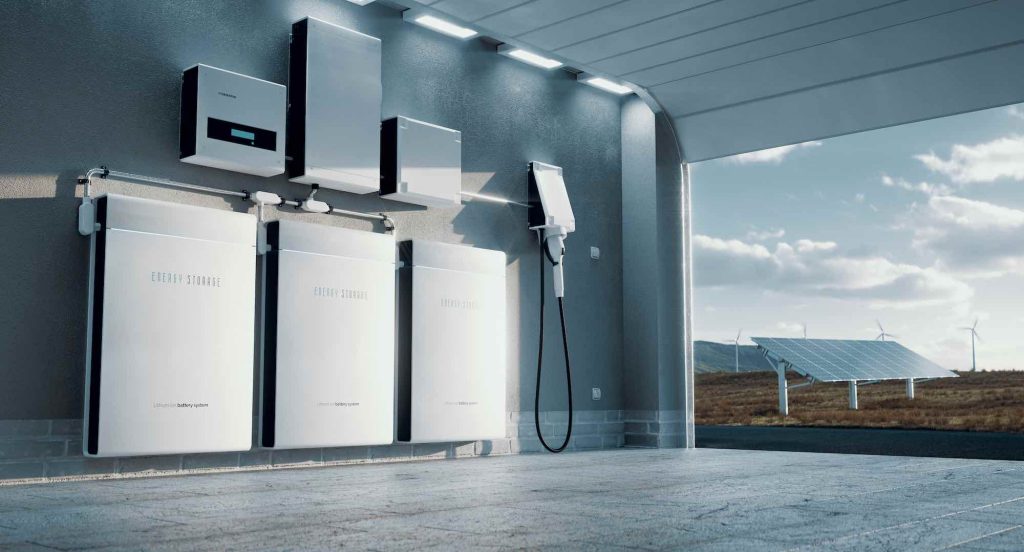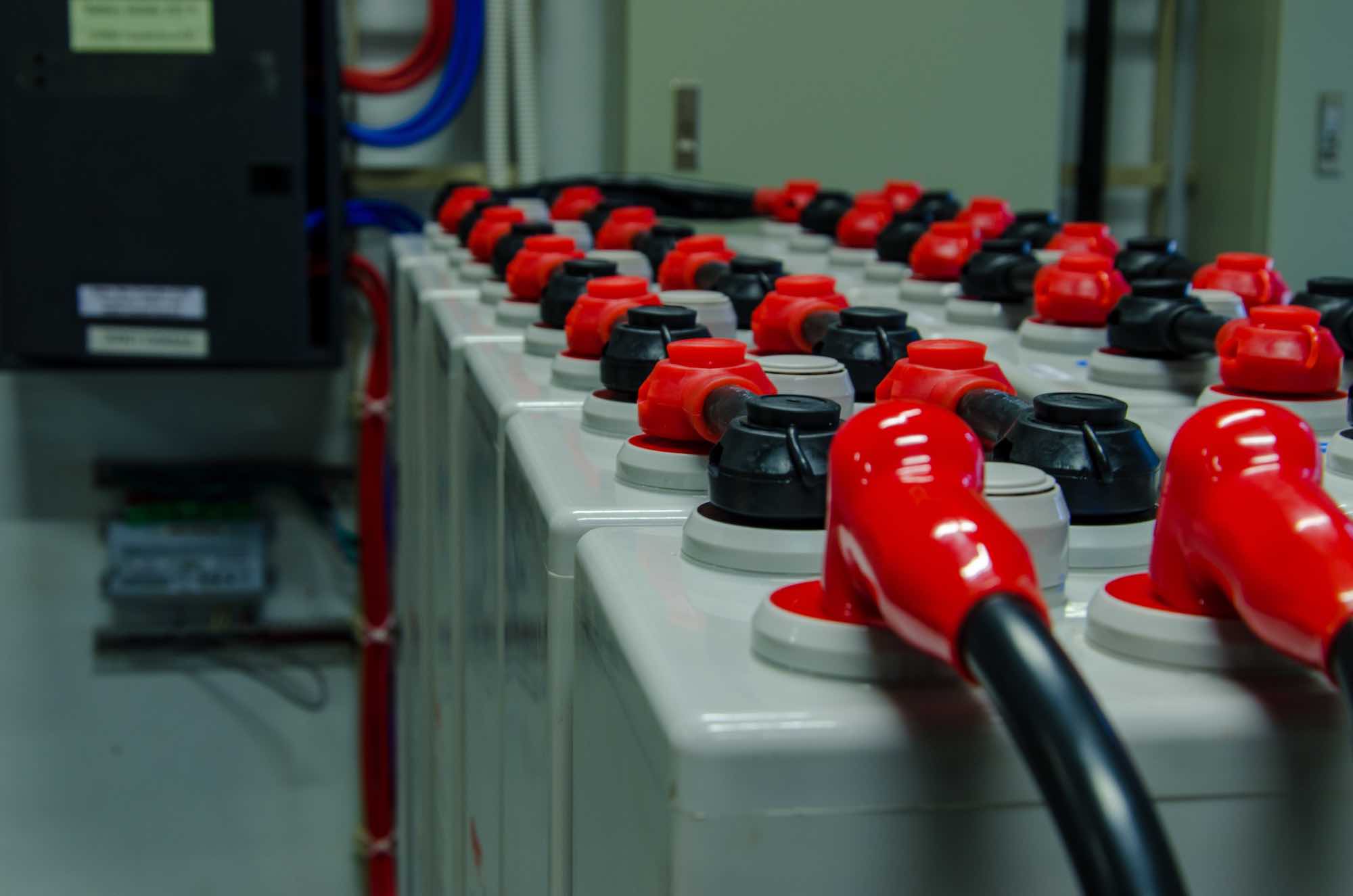When it comes to energy storage, a home solar battery bank is a wise choice. Battery storage for solar energy may help you get the most out of your solar power systems, whether you’re setting up a new one or already have one. The battery bank stores the extra electricity that solar panels generate.
Furthermore, these batteries provide reliable power backup during power outages or after sundown. Although batteries are not a standard feature of every solar power system, there are several good reasons to use or add them.
How Solar Battery Banks Work
You may store extra solar energy rather than re-inject it into the electrical grid by including a home solar battery bank into your solar panel system. If your solar panel produces more energy than you consume, you may use it to recharge your battery.
Additionally, you may use the energy saved when you need it, even when your solar panels aren’t generating power. Your battery only pulls power from the grid when it is low or sends power back to the grid only when it is full.
A typical domestic solar system gets four to six hours of sunlight daily. Also, most individuals are away from their homes during these times for work or education. Solar batteries may thus be charged during such times and can provide steady electricity at night and during blackouts. However, using home solar batteries involves three steps:
Solar Power Utilization
Utilizing solar energy is the first step in accessing solar battery power. Electricity is produced by solar panels using solar energy. The solar system’s electrical output may be used immediately, or it can be stored in a battery and later transformed into usable power.
Powering up The Battery
Batteries provide backup electricity for later usage when the electrical source powers your household appliances. The battery itself can be charged and recharged. Charge controllers are often included in solar power converters to regulate energy supply.
Battery Discharge
The stored energy may be used in the house later once the solar inverter has completely charged batteries. Also, the solar power converter transforms the electrical energy provided by the batteries into energy that household appliances can utilize.
There are two primary justifications for why a homeowner may decide to store extra energy for later use:
To Prepare For Power Interruptions.
When a power outage occurs, household electrical equipment may still be used thanks to the inverter’s conversion of alternating current (AC) supply to direct current (DC), which serves as the battery backup.
To Benefit From Utility Providers’ Time-Of-Use (TOU) Tariff Plans.
A TOU pricing scheme values grid power used at night than surplus energy produced by solar panels during the day. A solar battery may assist homes in making additional savings by avoiding peak power rates.
Types of Solar Batteries
The primary classification of solar batteries is based on the substance used during production. Nevertheless, Lead-acid and lithium-ion batteries are the most typical types of batteries used for energy storage.
Lead-Acid Batteries
The lead-acid battery is the oldest battery, with technology going back more than a century. As a consequence, lead-acid batteries are a tried-and-true option for storage. There are two kinds of lead-acid batteries: sealed lead acid batteries and flooded lead-acid batteries.
The cost of lead-acid batteries is much lower than other solar batteries. Also, the shorter lifetime and shallower depth of discharge of these batteries present several difficulties. The capacity of lead-acid batteries is also much less than that of other batteries, which may make the installation procedure more challenging.
Lithium-Ion Batteries
These batteries run on lithium-ion technology. Their cutting-edge technology does have new features, however. Lithium-ion batteries are widely used in portable electronics like laptops and cell phones because of their effectiveness, portability, and low weight. However, lithium-ion batteries risk thermal runaway and fire if improperly fitted.
Considerations to Keep in Mind Before Installing Home Solar Battery Banks
Installing home solar batteries involves several elements, including:
Power And Capacity
A battery’s capacity, expressed in watt-hours (Wh) or kilowatt-hours (kWh), represents the total energy it can store and release. Typically, household batteries have a storage capacity of 10 to 20 kilowatts. However, the amount of power accessible during a power outage will increase with the battery’s capacity.
Depth of Discharge (DoD)
The highest percentage of the battery’s capacity that may be safely drained without a recharge is known as the “Depth of Discharge” (DoD). However, it may harm the batteries to completely deplete them below the DoD mark though every battery’s handbook includes information about DoD values.
Deterioration And Battery Life
Daily charging and discharging eventually cause a battery’s cell efficiency and capacity to decline. A 10-year guarantee is commonly offered with solar batteries, but some batteries have a 20-year anticipated solar battery lifespan. However, repeated load shedding might harm the system and reduce the battery’s life.
Warranty
Important guidelines established by the provider of solar batteries are the warranty periods. Three key elements determine warranty terms:
- The number of years.
- The number of cycles.
- The battery’s remaining capacity.
Backup Time Requirement
When selecting the best home solar batteries, backup time is crucial. The size of the battery installation, however, determines how long a backup period is needed.
Advantages of a Home Solar Battery Storage System
Uninterrupted Power
Instead of depending on the utility for power, you may utilize energy produced throughout the day using a battery bank storage system. This system is very helpful in a region where power outages are regular.
Safeguarding Your Wallet
To maintain low rates and avoid affecting your monthly budget, battery storage enables you to use inexpensive energy that has already been produced and stored.
Better Surveillance
Through monitoring capabilities, a home solar bank storage system may assist you in more accurately and transparently tracking the energy your system produces. Using these storage systems, you can monitor the energy your house produces and consumes in real time.
Increased Energy Independence
Your ability to depend on battery bank storage allows you always to have sufficient power.
Home Solar Battery Bank System Drawbacks
Costly Energy Storage is Involved
Your solar power kits’ total upfront prices may significantly rise if you include solar batteries.
Increased Complexity
Solar systems may get more complicated with the inclusion of solar batteries. The complexity of running a solar system is increased by battery location, wiring, and size.
Increased Maintenance Expenses
Maintenance is needed for solar batteries. For instance, distilled water is necessary for lead-acid batteries to maintain water levels. Time and money are required for its upkeep.
The Home Battery’s Lifespan Restrictions
Each battery has a finite lifetime influenced by the number of charge-recharge cycles utilized and other external elements like temperature.
Should i Invest in Home Solar Bank Batteries?
The solar energy system’s solar bank batteries are an essential component. Also, installing home solar batteries is a wonderful choice if you want long-term benefits. Home solar battery banks are crucial for residents of places with regular power outages and those with favorable policies for using solar batteries. The environmental benefits of solar batteries also make them essential investments in the sustainability of our environment.



